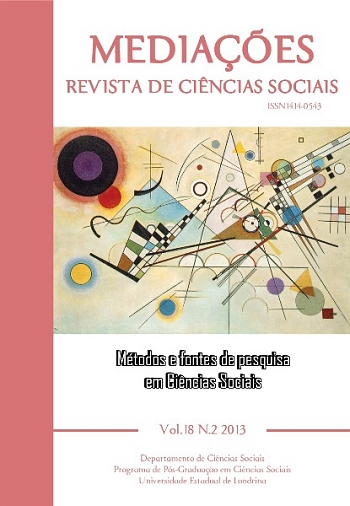Reflexões sobre o movimento passe livre e outros "novos movimentos sociais"
DOI:
https://doi.org/10.5433/2176-6665.2013v18n2p110Palavras-chave:
Movimento Passe Livre, Movimentos sociais, Contracultura, Protestos no BrasilResumo
Em 6 de junho de 2013, o Movimento Passe Livre iniciou um protesto muito agressivo contra o aumento das tarifas de ônibus e metrô em São Paulo, Brasil. Em uma jornada de duas semanas, o movimento organizou seis protestos que bloquearam algumas das avenidas mais importantes de São Paulo. Após os protestos ganharem um caráter massivo (alguns excederam um milhão de pessoas), tanto a prefeitura quanto o governo do estado cederam e reduziram as tarifas. As mobilizações de junho foram horizontais, apartidárias e baseadas na ação direta. Esses eventos guardam semelhança com outras mobilizações recentes, como o Ocupe Wall Street e o Movimento 15M na Espanha, mas são diferentes em um importante aspecto: eles tinham apenas uma demanda - a redução de 20 centavos nas tarifas de ônibus e metrô. Essa demanda única permitiu ao movimento desenvolver uma estratégia clara e bem-sucedida, ao passo que conservaram a horizontalidade e a criatividade contracultural de outros novos movimentos. Na verdade, essa série de protestos pode ter propiciado com modelo para a coordenação de um interesse em processos que apontam estrategicamente para resultados específicos.Downloads
Referências
CASTORIADIS, Cornelius. Philosophy, Politics, Autonomy. Oxford: Oxford University Press, 1991.
TRONTI, Mario. Operai e capitale. Roma: DeriveApprodi, 2006 [1966].
WEBER, Max. Politics as Vocation. In: GERTH , H. H.; WRIGHT MILLS, C. (ed.) From Max Weber: Essays in Sociology. New York: Routledge, 2009.
Downloads
Publicado
Como Citar
Edição
Seção
Licença
Copyright (c) 2013 Pablo Ortellado

Este trabalho está licenciado sob uma licença Creative Commons Attribution 4.0 International License.
Os direitos autorais relativos aos artigos publicados em Mediações são do(a)s autore(a)s; solicita-se aos(às) autore(a)s, em caso de republicação parcial ou total da primeira publicação, a indicação da publicação original no periódico.
Mediações utiliza a licença Creative Commons Attribution 4.0 International, que prevê Acesso Aberto, facultando a qualquer usuário(a) a leitura, o download, a cópia e a disseminação de seu conteúdo, desde que adequadamente referenciado.
As opiniões emitidas pelo(a)s autore(a)s dos artigos são de sua exclusiva responsabilidade.





































